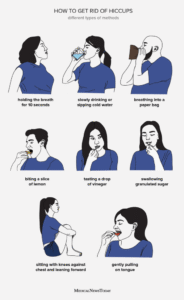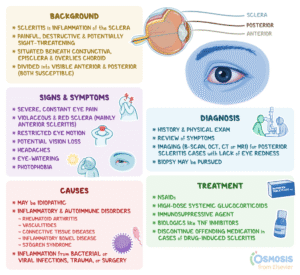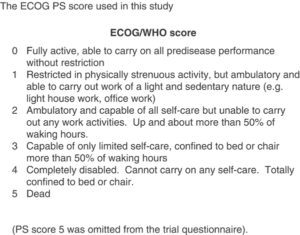Physical Symptoms of Depression
Physical Manifestations of Depression
The mind and body are deeply intertwined, each influencing the other in profound ways. While depression is often associated with emotional struggles like sadness or hopelessness, its physical symptoms are just as real and impactful. From chronic pain to fatigue and digestive issues, these bodily signs can significantly affect daily life. This article explores the physical symptoms of depression, their causes, and practical ways to support your body while managing this condition.
How Depression Affects the Body
Depression is more than a mental health challenge—it triggers physical responses that can disrupt normal functioning. The brain’s neurotransmitters, such as serotonin and norepinephrine, regulate both mood and physical sensations like pain. When these chemicals are imbalanced, the body can experience a range of symptoms. Additionally, the brain and body communicate through systems like the gut-brain axis, amplifying physical discomfort during depressive episodes.
Chronic Pain and Aches
Many individuals with depression experience unexplained aches, headaches, or muscle pain that persist despite treatment. Research indicates that up to 85% of people with chronic pain also have significant depression, suggesting a strong link. This connection arises because:
- Shared Brain Regions: The areas of the brain that process pain also regulate mood, creating overlap between the two.
- Neurotransmitter Imbalance: Low levels of serotonin and norepinephrine can heighten pain sensitivity, making discomfort feel more intense.
A 2015 study found that individuals with major depression have lower pain thresholds, while a 2017 report highlighted how chronic pain can, in turn, trigger or worsen depression.
Overwhelming Fatigue
Fatigue is a hallmark of depression, with 90% of affected individuals reporting low energy or persistent tiredness. This exhaustion can make routine tasks, work, or social activities feel insurmountable. Unlike typical tiredness, depression-related fatigue often lingers even after rest or treatment, significantly impacting quality of life.
Gastrointestinal Distress
The gut and brain are in constant communication via the gut-brain axis, which explains why emotional distress often manifests as digestive issues. People with depression may experience:
- Nausea
- Constipation
- Diarrhea
- Abdominal pain
These symptoms arise because stress and depression disrupt gut function, and poor gut health can, in turn, exacerbate mental health challenges.
Immune System Changes
Depression can weaken the immune system, increasing susceptibility to illness. When stressed or depressed, the body enters a heightened state, similar to the fight-or-flight response, which overstimulates the immune system. This dysregulation may also raise the risk of autoimmune disorders. Conversely, autoimmune conditions can increase the likelihood of developing depression, creating a bidirectional relationship.
Appetite and Weight Fluctuations
Depression often alters appetite, with 48% of individuals experiencing reduced hunger and 35% reporting increased cravings. These changes stem from disruptions in brain regions responsible for reward and motivation. As a result, some may lose weight due to disinterest in food, while others may gain weight from emotional eating.
Physical Signs of Anxiety and Depression
Anxiety, which often accompanies depression, can amplify physical symptoms. The activation of the autonomic nervous system during anxious states can cause:
- Shortness of breath
- Trembling or shakiness
- Headaches
- Nausea
- Stomach discomfort
Recognizing these overlapping symptoms is key to understanding the full scope of mental health challenges.
Spotting Physical Symptoms in Others
Physical signs of depression vary from person to person, but common indicators include:
- Persistent low energy or lethargy
- Unexplained pain or discomfort
- Changes in appetite or weight
- Sleep disturbances
- Digestive or bowel irregularities
Observing these signs in loved ones can help identify depression early, enabling timely support.
Why Depression Impacts the Body
The notion that depression is solely a mental condition overlooks the intricate connection between mind and body. Neurotransmitters like serotonin are not only present in the brain but also in the gut, explaining why depression often triggers digestive issues. Similarly, stress hormones like cortisol can disrupt multiple bodily systems, from immunity to energy regulation, when depression takes hold.
Supporting Your Body During Depression
Managing the physical symptoms of depression requires a holistic approach. Here are practical steps to nurture your body while addressing mental health:
Seek Professional Help
Consult a healthcare provider to develop a tailored treatment plan. Therapy, medication, or a combination of both can alleviate both mental and physical symptoms.
Prioritize Nutrition
Eating a balanced diet rich in whole foods supports gut health and stabilizes energy levels. Focus on incorporating fruits, vegetables, lean proteins, and healthy fats.
Stay Active
Regular exercise, even light activities like walking or yoga, can boost mood, reduce pain, and combat fatigue by increasing endorphin production.
Maintain a Sleep Routine
Consistent sleep schedules promote better rest, which is critical for managing depression-related exhaustion and supporting overall health.
Build Social Connections
Engaging with supportive friends or family can reduce feelings of isolation and improve emotional and physical well-being.
Avoid Harmful Substances
Limit alcohol, nicotine, and recreational drugs, as they can worsen depression symptoms and disrupt bodily functions.
Final Thoughts
Depression is a complex condition that affects both mind and body, manifesting in symptoms like pain, fatigue, and digestive issues. These physical signs are not just “in your head”—they’re real and deserve attention. By understanding these symptoms and taking proactive steps like seeking treatment and practicing self-care, you can support your body and work toward healing. If you or someone you know is struggling, reach out to a healthcare professional for guidance.
💡 Frequently Asked Questions
Listed here are components toward visual appearance for towards locate despair inside other folks:
* Reduced electricity
* Improvements inside of hunger
* Issue sleeping
* Unexplained aches or pains
* Bowel stream adjustments Why Does Despair Impact the Human body Bodily?
Answer coming soon. We are working on detailed responses to this common question.
⭐ Expert Tips
- Include seasonal or trendy variations to keep your meals exciting.
- Highlight prep shortcuts or time-saving techniques for busy cooks.
- Consider dietary restrictions and include substitution suggestions.
✅ Key Takeaways
- These dinner ideas are perfect for impressing guests or enjoying special occasions.
- Choose recipes that match your skill level and available kitchen tools.
- Presentation and taste both contribute to a memorable dining experience.
📣 Join Our Community
Want more inspiration like this? Subscribe to our newsletter for weekly dinner ideas and cooking tips!







